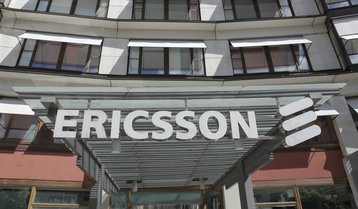Ericsson shares fell more than 14 percent after the company said that it may have given money to the ISIS terror group in Iraq.
An internal probe from 2019 found serious breaches of compliance rules in Iraq, including payments for transport routes to evade local customs.
“What we are seeing is that transport routes have been purchased through areas that have been controlled by terrorist organisations, including ISIS,” Ericsson CEO Borje Ekholm told Swedish newspaper Dagens Industri.
The exec said that they had found “unusual expense claims in Iraq, dating back to 2018," covering “the conduct of Ericsson employees, vendors and suppliers in Iraq during the period 2011-2019."
Investigators “could not determine the ultimate recipients of these payments. Payment schemes and cash transactions that potentially created the risk of money laundering were also identified.”
The company said that it was not able to confirm that any Ericsson employee directly gave money to ISIS, which controlled about 40 percent of Iraq at the time. But, due to the investigation, several employees "were exited from the company" and multiple other disciplinary and other remedial actions were taken, Ericsson said.
The telco has also terminated several third-party relationships and said it would train its Iraqi business on following the law.
In December 2019, Ericsson was fined more than $1bn to settle US criminal and civil investigations into foreign corruption in China, Indonesia, Vietnam, Djibouti and Kuwait. Last October, it said that the US Department of Justice had warned that it had breached its obligations under a deferred prosecution agreement by failing to provide documents and information regarding the corruption charges.




